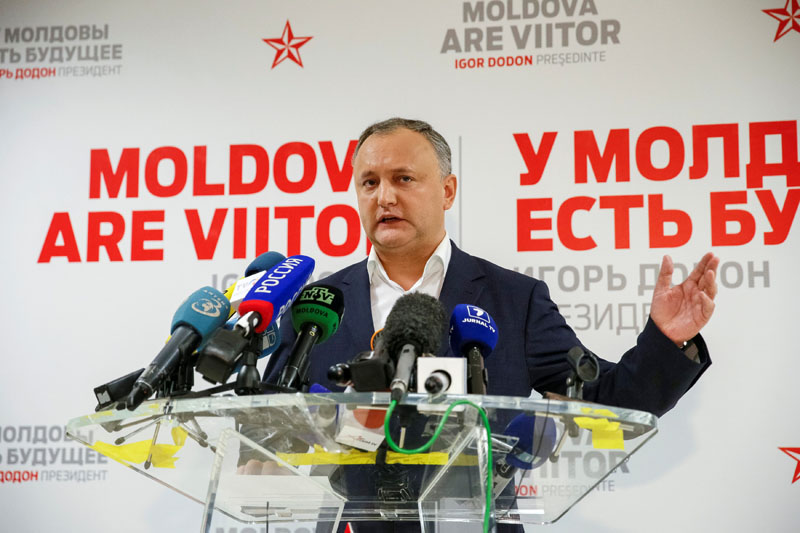Pro-Russian candidate triumphs in Moldova presidential race
CHISINAU: A pro-Russian candidate for president of Moldova has won the race, preliminary results showed on Sunday, following a campaign in which he vowed to slam the brakes on seven years of closer integration with the European Union.
With 98 percent of votes counted, online results showed Socialist candidate Igor Dodon had won 54 percent, and his pro-European challenger, Maia Sandu, had just under 45 percent.
Dodon's win is in part a reflection of a loss of trust in pro-European leaders in the ex-Soviet state of 3.5 million, which was plunged into political and economic crisis after a corruption scandal came to light in late 2014.
"I am president for the whole country, for those who voted for me and those who voted against," Dodon said in a short briefing to journalists.
In another potential blow to the European Union brand, Bulgaria - which also held a presidential vote on Sunday - elected a pro-Russian candidate by a large margin, according to exit polls.
The president in Moldova is more than just a figurehead: he or she can return laws to parliament and dissolve the assembly in certain situations.
Dodon's promise to pursue closer ties with Russia rather than the European Union is in direct conflict with the pro-European stance of the current government.
Prime Minister Pavel Filip said the two sides would need to work together in Moldova's best interest.
"This includes key reforms needed for the country's modernization and continued EU path, which cannot be reversed," he said in emailed comments after polls closed.
Squeezed between Ukraine and EU member Romania, Moldova signed a political and trade agreement with the European bloc in 2014 that damaged its ties with Moscow, which imposed trade restrictions on Moldovan farming exports.
Dodon's Socialist party wants to scrap that agreement in favor of joining a Eurasian economic union dominated by Russia - a policy backed by many Moldovans who have suffered financially from the goods embargo and broader economic downturn.
"He's got experience and knows that now is not the time to be turning a back to Russia, while she (Sandu) only looks to Europe," said pensioner Tatiana, declining to give her last name.
The banking scandal in Moldova involved the looting of $1 billion - the equivalent of an eighth of its economic output, highlighting the scale of corruption in Europe's poorest nation.
Moldovans believe members of the pro-EU elite were complicit.
"Local partisans of the West or EU have not only performed weakly but have performed perversely," said William Hill, a former head of the Organization for Security and Co-operation in Europe (OSCE) mission in Moldova.
"And this has gone a long way to discrediting popular faith in the ideals of the West and the prescriptions of the EU or the US as effective medicine for what ails their societies and their economies."
In a sign of the waning enthusiasm for the EU, just 30.9 percent of Moldovans would currently support joining as a full member, compared to 44 percent favoring the Eurasian Customs Union, a survey by Moldova's Institute for Public Policy showed in October.






